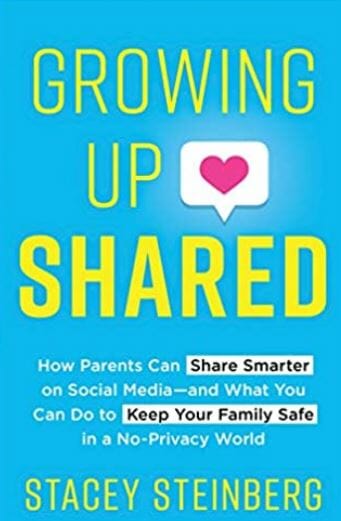The New Classroom

Imagine it is fall and your child is smiling away in in her new Zoom classroom, hair a mess, pajama shirt still on. From the corner of your eye, you notice another parent in another child’s square hold up her iPhone, poised to take a picture of the class.
Would you be surprised?
Upset?
Angry?
Chances are that your reaction would likely vary based on your own comfort level with sharing pictures of you children with others. While there has been much discussion about tech privacy features in the age of COVID-19, most have focused on “Zoom bombing,” data collection, and what teachers share about kids, not on what other parents share about other kids online.
Any while iPhone pictures of Zoom classrooms are becoming as popular as back to school pictures in front of homes, there is one big difference – many of the parents in your child’s Zoom classroom may not view privacy in the same way that you do.
Laws surrounding children’s privacy in the online classroom focus on common occurrences in a pre-pandemic world. In those instances, administrators were more likely to have taken the time to check for FERPA compliance and to analyze potential risks before setting up the technology in virtual classroom settings.
But in a world where everything from student government to sports are taking place in online settings, perhaps we need to think not only about how the technology itself poses dangers to student privacy, but also to consider whether we should be more concerned with how others in the virtual classroom are able to use information about our children.
I have been researching children’s privacy on social media for the past five years, and my work on sharenting found its genesis in self-reflection. I did not realize I was oversharing until I found myself doing it regularly, and I had to take a step back and try to do better. Even now, as my book Growing Up Shared makes its way into the world, I still rethink, analyze, and talk to other parents to refine how I can best keep my family safe in a no-privacy world. These steps can help parents get started as they start to prepare for our students to return to their online classrooms.
- Know the school’s privacy policies. Ask administrators for clear guidance before logging your child onto online platforms. Many have had the summer to think through these issues, and its important that parents insist on school districts “showing their work” when it comes to establishing systems that protect their children’s information online.
- Talk to other parents. Many parents are slowly considering how online learning could impact our children’s digital footprints. Can schools publicly share your child’s grades? Can they share their class rosters? What about your child’s group art project without asking first? When we think about these questions in the context of brick and mortar classrooms, we can logically reason how they might be answered online. But answers may differ based on local interpretations of norms, policies, and laws.
- Set Expectations. If the situation mentioned in the first paragraph gives you uncomfortable chills, speak up and share your concerns with teachers before the situation arises. Teachers have so much on their plate right now, and they might appreciate you raising the issue early in the school year, so that when there is a potential concern, it is already on their radar.
- Talk to Your Kids. For many of us, we will be working on our own laptops as our kids plug away at schoolwork in the other room. Help your kids understand how classroom rules in their traditional school apply in their new online classroom. Many of us are starting to think more about the backgrounds in our own Zoom meetings. Can you see a bed? A personal document? A sibling? Kids may want to take control of their virtual background, and as we plan out our school supplies, we can help them think about their virtual spaces. Parents can also have conversations about appropriate clothing and other hygiene basics to consider for when they virtually “show up” in class.
There are excellent scholars and attorneys already looking at issues surrounding student data collection and privacy, and their work is critical to these conversations. More work is needed in this area, as opportunities for student data exploitation will likely only continue to grow as we continue to move our children’s academic interactions online. As policy makers work to integrate the research into our new COVID realities, parents can start thinking through these issues as well, helping to keep their kids safe in the virtual classrooms they may sit in next month.
Stacey Steinberg is a legal-skills professor at the University of Florida Levin College of Law and the author of the new book, Growing Up Shared.


